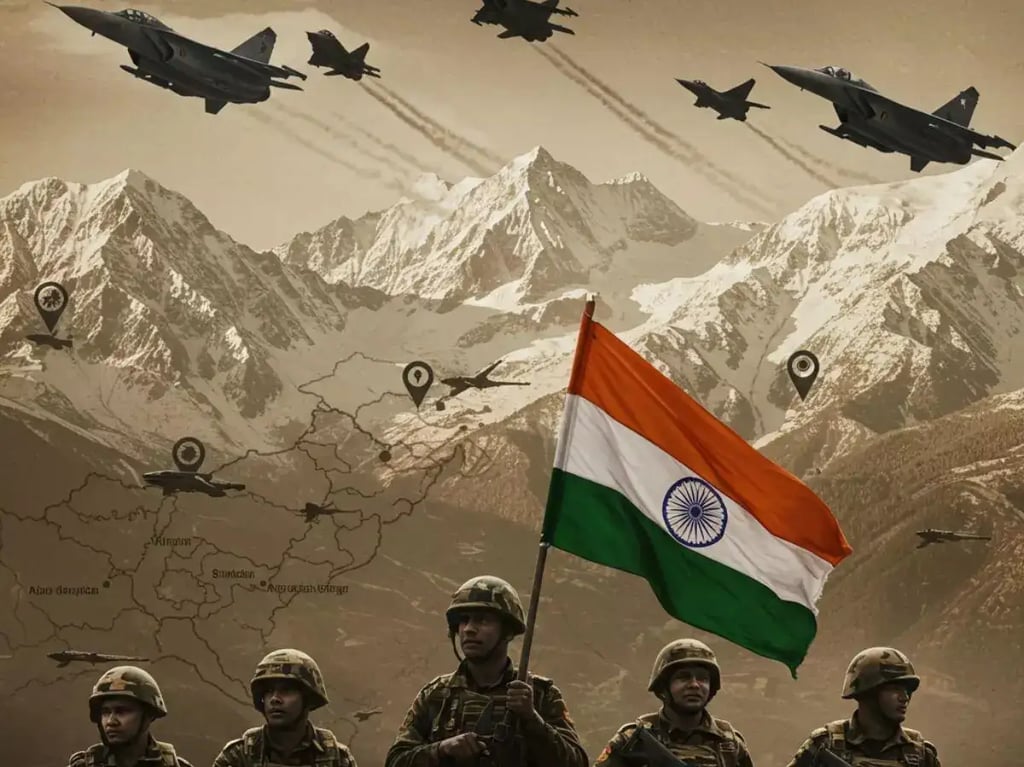Why India Must Stand Firm: Defending Sovereignty Against Pakistan's Escalation
Amid rising tensions and unprecedented attacks, India’s strong and measured military response to Pakistan's aggression isn’t just justified—it’s necessary for the nation’s security, sovereignty, and regional stability.
OPINION
Emmanuel Makome
5/10/20252 min read


India Had No Choice but to Act
The latest string of terror and drone attacks launched by Pakistan represents more than a tactical escalation—it’s a direct assault on Indian sovereignty and civilian lives. After the horrifying attack in Pahalgam that left 26 innocent people dead, India’s response under "Operation Sindoor" was not a reaction of vengeance, but a calculated and necessary act of national defense.
India cannot be expected to watch passively while its civilians are slaughtered and its military infrastructure is threatened. In striking back at terror bases in Pakistan and Pakistan-occupied Kashmir, India demonstrated both restraint and resolve. This wasn’t an act of war—it was an act of protection.
Pakistan's Strategy: Escalate, Then Play Victim
Pakistan has long used asymmetric warfare and proxy terror groups to destabilize India while maintaining plausible deniability. But now, in openly launching drone and missile attacks against Indian military sites from Leh to Sir Creek, they’ve crossed a dangerous line. Worse, their attempt to mask offensive strikes as "retaliation" only underscores their intent to provoke, not to protect.
Pakistan's decision to convene its National Command Authority—its nuclear oversight body—is deeply concerning. It signals desperation and attempts to draw international sympathy by playing the nuclear card. But this shouldn’t be mistaken for strength. It's a sign of a state that has lost diplomatic credibility and is now clinging to dangerous brinkmanship.
India’s Response Was Strategic, Not Reckless
While Pakistan has tried to spin the narrative, India has exercised exceptional discipline. Despite being capable of overwhelming military superiority, New Delhi limited its strikes to known terror launchpads and avoided civilian infrastructure. This shows India is not seeking war but peace through deterrence.
Furthermore, India’s success in intercepting dozens of Pakistani drones and preventing attacks on over 15 cities speaks volumes about the country's growing defense readiness and technological edge. Every Indian should take pride in how our forces protected millions without plunging into chaos.
The International Community Must Wake Up
It’s time for the world to stop treating India and Pakistan as equal contributors to the conflict. One side is a stable democracy with global economic ambitions and a responsible military doctrine. The other is a failing state that harbors terrorists, stifles democracy, and recklessly threatens nuclear war.
India has shown the maturity and strength of a nation that wants peace but refuses to be bullied. The international community must support India's right to self-defense, not pressure it into dangerous concessions for the sake of temporary calm.
Conclusion: A Message to the Nation
India is not the aggressor—it is the shield standing between chaos and civilization in South Asia. The road ahead will demand strength, clarity, and unity. We must support our armed forces, trust our leadership, and remember that peace is not given—it is earned through strength and resolve.
Jai Hind.
Photo: Gemini AI
MORE NEWS
© 2026. Ke Press Global. A Ke Harbor Company. All rights reserved.
FOLLOW KE PRESS GLOBAL ON :
Contact us


